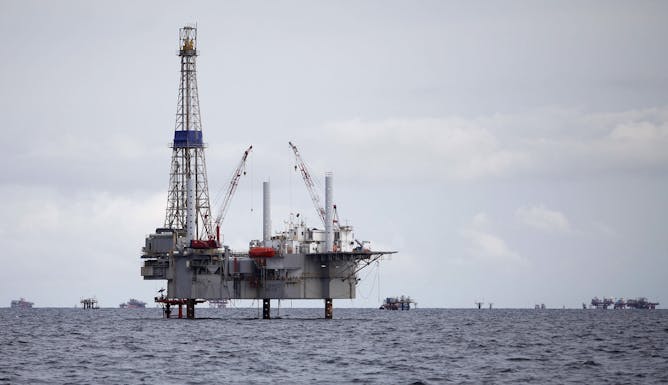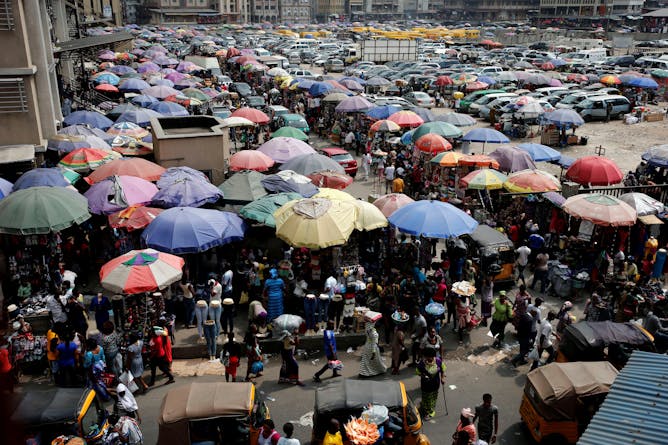|
Guyana, on South America’s northern coast, has hit the jackpot: massive offshore oil reserves. By 2018, five new ExxonMobil wells will be pumping out 120,000 barrels of Guyanese crude daily. Anthony Bryan explores whether this poor, fractious nation – population 750,000 – is poised for great wealth or even greater social conflict.
The corporate world is hugely interested in Africa’s middle class, as evidenced in a new study that surveyed people in Abidjan, Accra, Addis Ababa, Douala, Dar es Salaam, Kano, Lagos, Nairobi, Luanda and Lusaka. But, argues Henning Melber, this and similar research echoes a poorly informed narrative about the structure of societies in Africa. It is void of any class-related analysis and offers little bearing on reality. People are seen only as consumers with no political relevance.
|

Guyana, a former British colony on the north shore of South America, may soon supplant Trinidad and Tobago as the Caribbean region’s biggest oil producer.
Reuters/Andrea De Silva
Anthony T. Bryan, The University of the West Indies: St. Augustine Campus
Guyana is on the verge of an oil bonanza that could bring in US$1 million a day. But if it's not careful, this poor nation – population 750,000 – could fall prey to the dreaded 'resource curse.'
|

The Oluwole Urban Market near Marina in Lagos. Being middle class is more than just being a consumer.
Reuters/Akintunde Akinleye
Henning Melber, University of Pretoria
Scholars have started to investigate what it really means to be middle class in Africa.
|
Science + Technology
|
-
Jenny Graves, La Trobe University
Like it or not, evidence now shows that men and women differ genetically far more profoundly that we previously recognised. An analysis from the 2017 winner of the Prime Minister's Prize for Science.
-
Harriet Dempsey-Jones, University of Oxford
Some people can see at a finer resolution than the spacing between individual photo-receptors in the eye – and it's all down to their brains.
|
|
Politics + Society
|
-
Simon Mabon, Lancaster University
With just 67 words, a British foreign secretary kicked off a hundred years of conflict and displacement.
-
Sekou Toure Otondi, University of Nairobi
Raila Odinga has been at the forefront of the struggle for democracy and upholding the rule of law in Kenya. His latest battles are bound to cement his legacy as a progressive force for good.
-
Vittorio Felci, Lund University
An insight into Iranian media and public opinion in the aftermath of Donald Trump's speech decertifying the 2015 Iran Nuclear deal.
-
Paul Kennedy, University of Bath
An ousted leader, a divided electorate and the risk of further violence pile on the tension ahead of the December vote.
|
|